Posts by mdallanegra
Karibu: Welcome. Come Back Any Time.
By Kendra Guttridge, a World Relief Spokane spring intern
To be engaged with World Relief is to encounter the global, multicultural Kingdom of God. This intersection of so many dynamic communities, all created in the Imago Dei, is a powerful witness.
I’ve interned at World Relief Spokane since the beginning of February, and every day I have been enriched. Of course, that richness results naturally with World Relief’s mission and working with the refugee community, but it also comes even just being in the office space, surrounded by so much diversity. As I work at my desk, stationed in the middle of the Integration & Wellness department, I hear Yeva singing in Ukrainian from her office; I compare files I organized with Wahid’s and realize his default is right to left while mine is left to right; I cram into the break room with other staff as Morella teaches us to make arepas. At any given moment, I get to encounter a different way of being. I get to be reminded of my smallness in the vastness of creation and of what a holy thing intricacy is.
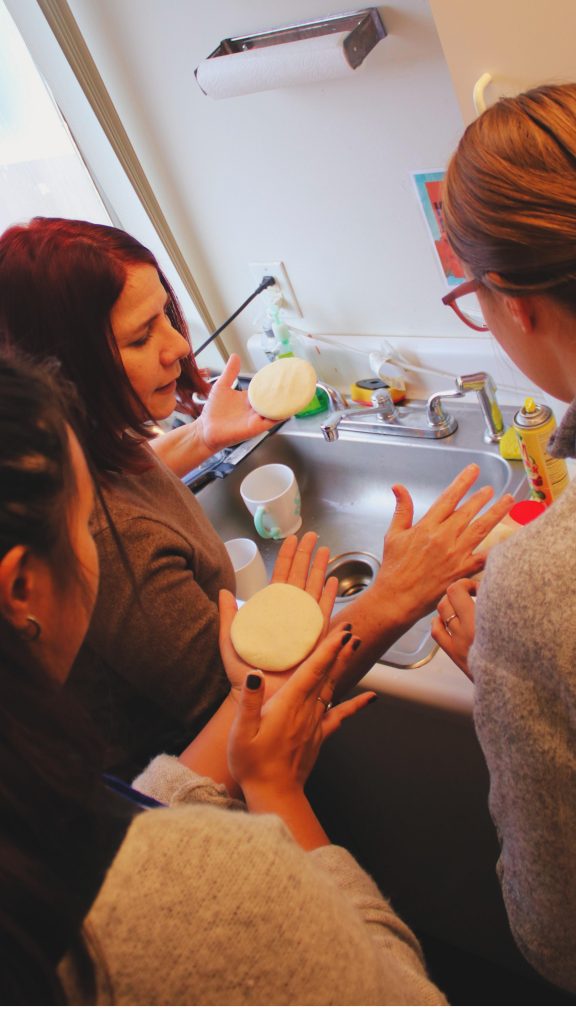
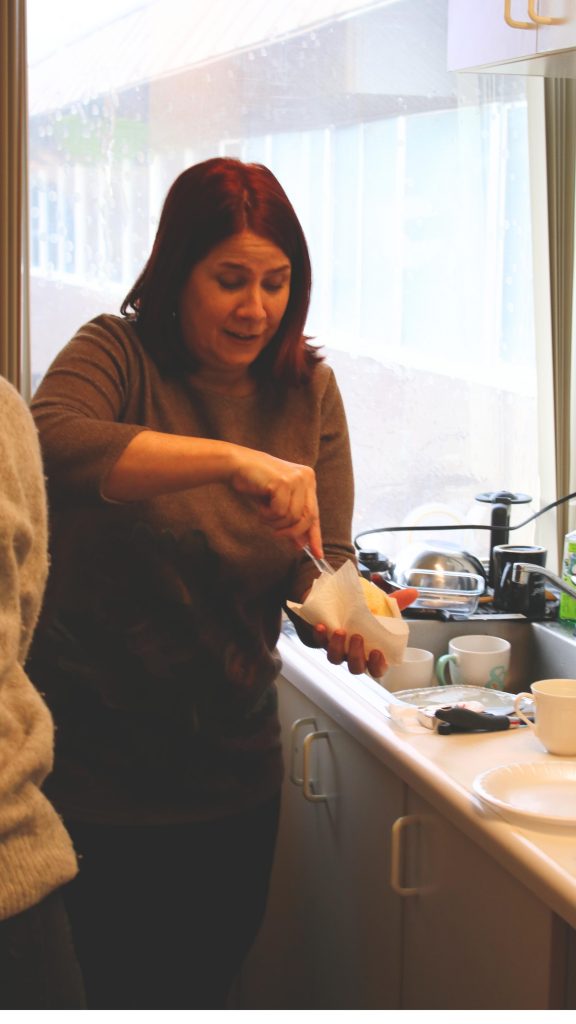
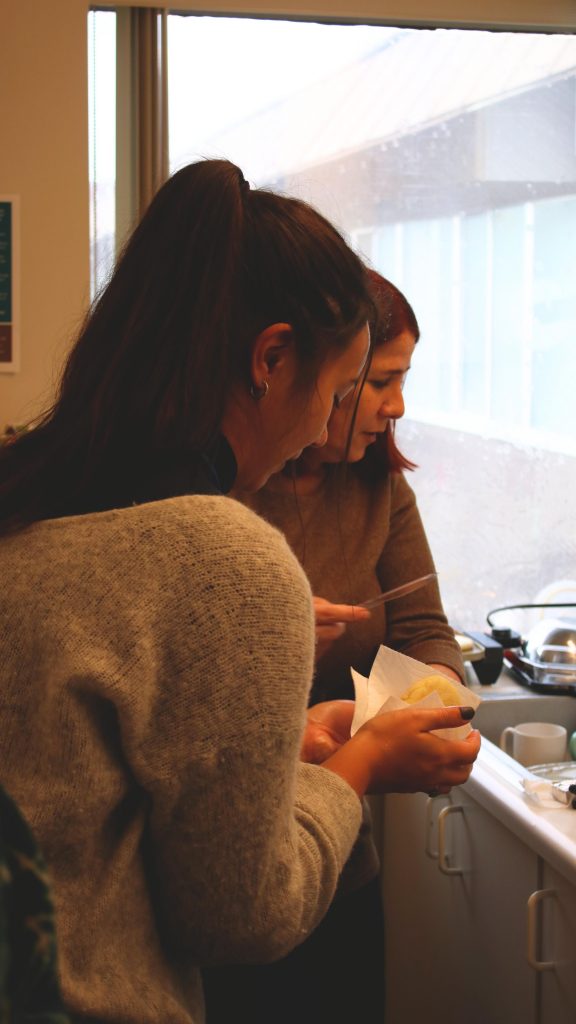
I am also reminded of my smallness when I work with our clients; it has been such an honor to be invited in and trusted to hold some of the many stories that refugees carry. Once, I was at the doctor’s office with a client and another World Relief staff member, and as we were waiting for the nurse, he wanted to practice his English. He began to tell us about his home country. Though he wasn’t able to find all the right words, he recounted to us how the Taliban mowed down his people. He held his hands as though they were supporting a gun, and with his mouth, he imitated the stuttered drilling of open fire. It was heartbreaking, and I looked to my coworker, only to realize her face was one of recognition because she is from Ukraine. When she expressed that to our client, there was a sacredness in their exchange. The deep lament over violence in their countries of origin—their homes—was a wound they shared. How terrible and beautiful that in that moment, they could share it together.
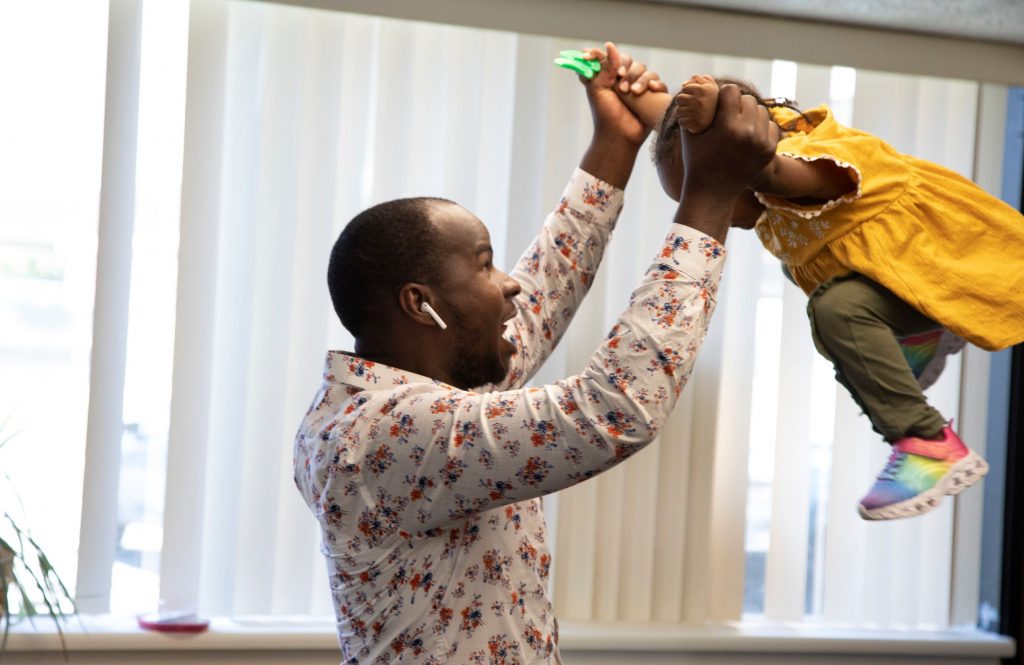
To say that there is a lot of heaviness in these interactions is an understatement. The brokenness of the world is never so clear as when I listen to all that refugees have faced, but in the midst of it all, the Lord is so near. Brokenness is interwoven with beauty. In the darker moments, I look to the light of community, like learning Swahili on a home visit with a family. I was just shadowing a case manager, I contributed nothing, but the mother was so gracious. She told me karibu. Welcome. Come back any time. Her face, full of laughter and joy, as she taught me the words for hello, thank you, and goodbye is a memory I hold tight to. In the same way, I hold tight to the daughter of a family I conducted a home visit with. She came home from school in the middle of my time there and sat down right next to me. She amazed me with her boldness – and she was so smart too. She helped translate for her parents, and whenever she had a chance in between, she told me all about her classes and her experience here in Spokane in comparison to all the other places she has lived. At the end, she asked me for a hug, and I saw in her eyes just how relieved she was that her family was heard. I will never stop praying for her.
Prayer is an integral practice for this kind of work, I’ve learned. There is so much entirely out of human control, on both institutional and individual levels. There are often times when every resource has been exhausted and there is nothing left to do but pray and surrender it all to God who holds all things, who cares for the oppressed, who was in this world as a refugee in the person of Jesus. And as I pray, I know that each department in the World Relief office prays for one another, and I know there is an entire network of churches praying too; it’s another glimpse into the Kingdom. I think of how it looked in Acts 4: “32 All the believers were one in heart and mind. No one claimed that any of their possessions was their own, but they shared everything they had. 33 With great power the apostles continued to testify to the resurrection of the Lord Jesus. And God’s grace was so powerfully at work in them all 34 that there were no needy persons among them.”
I continue to pray for this Kingdom come.
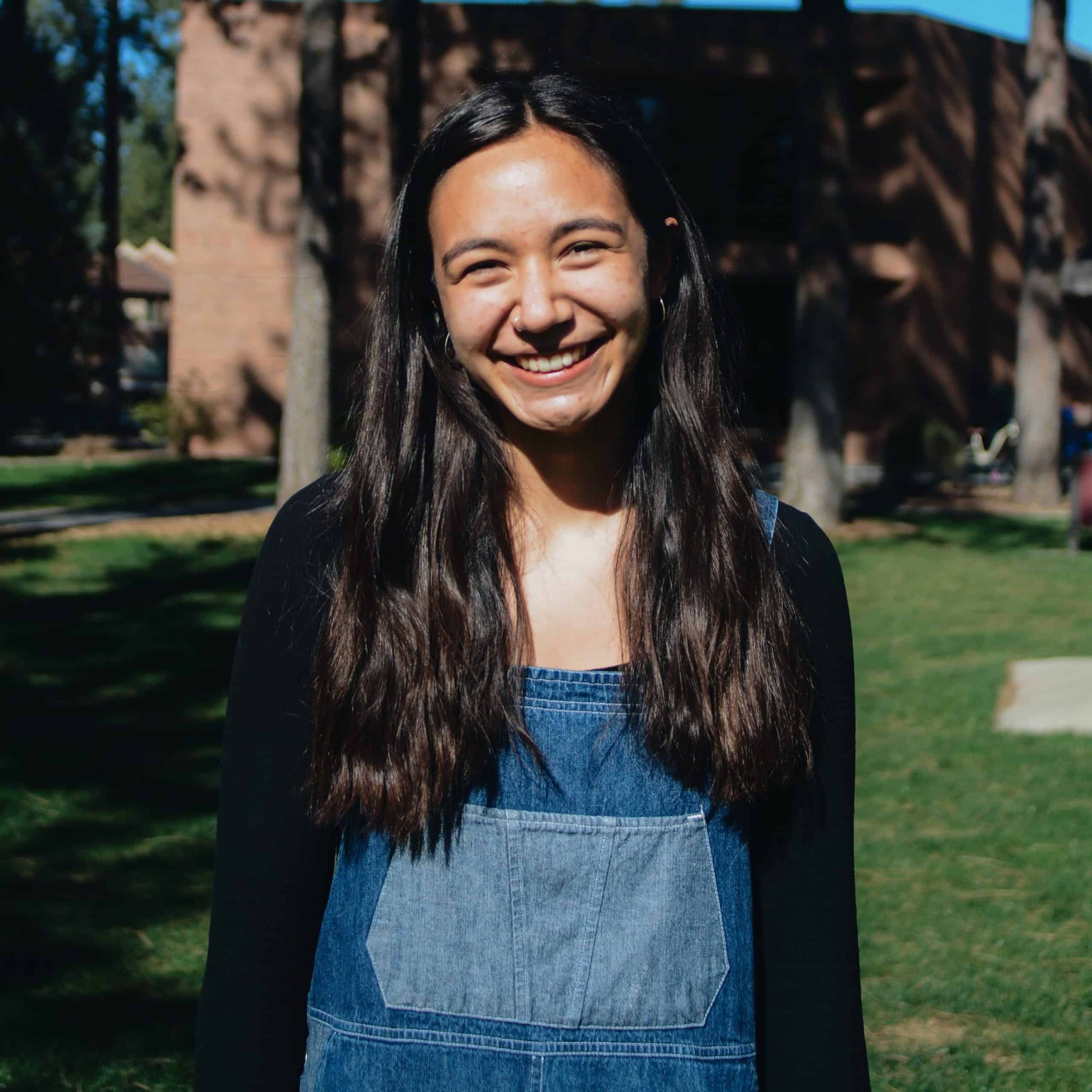
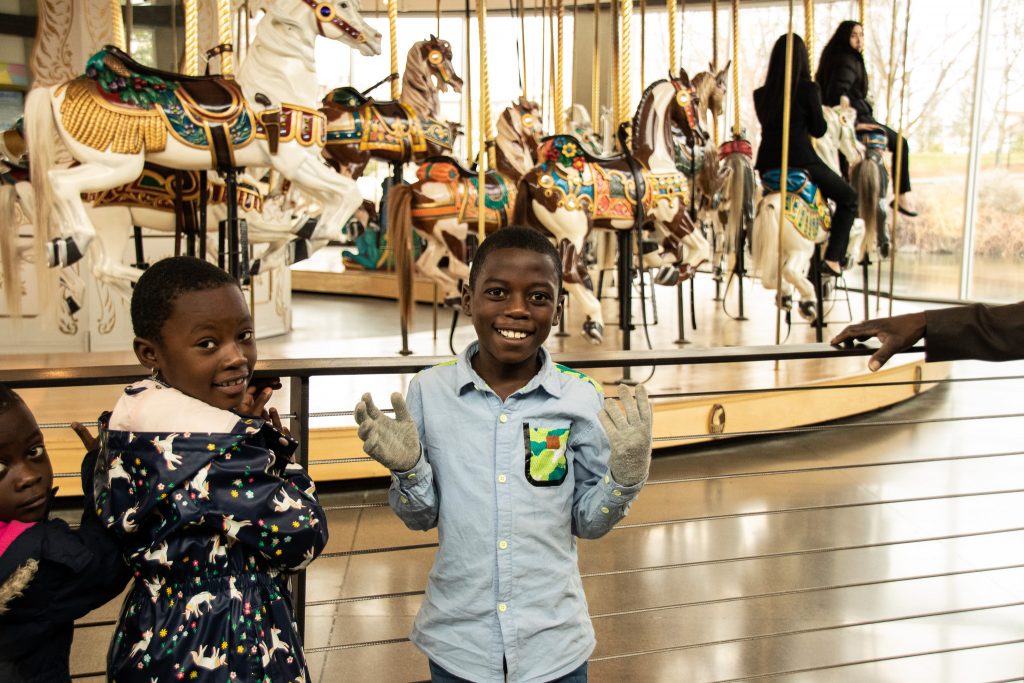
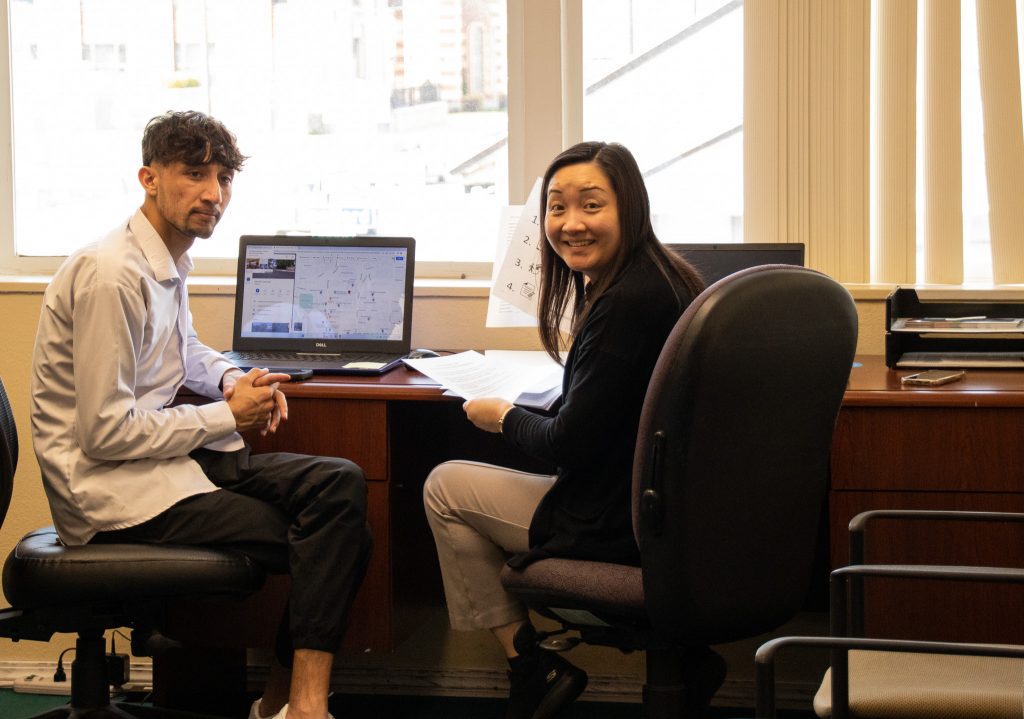
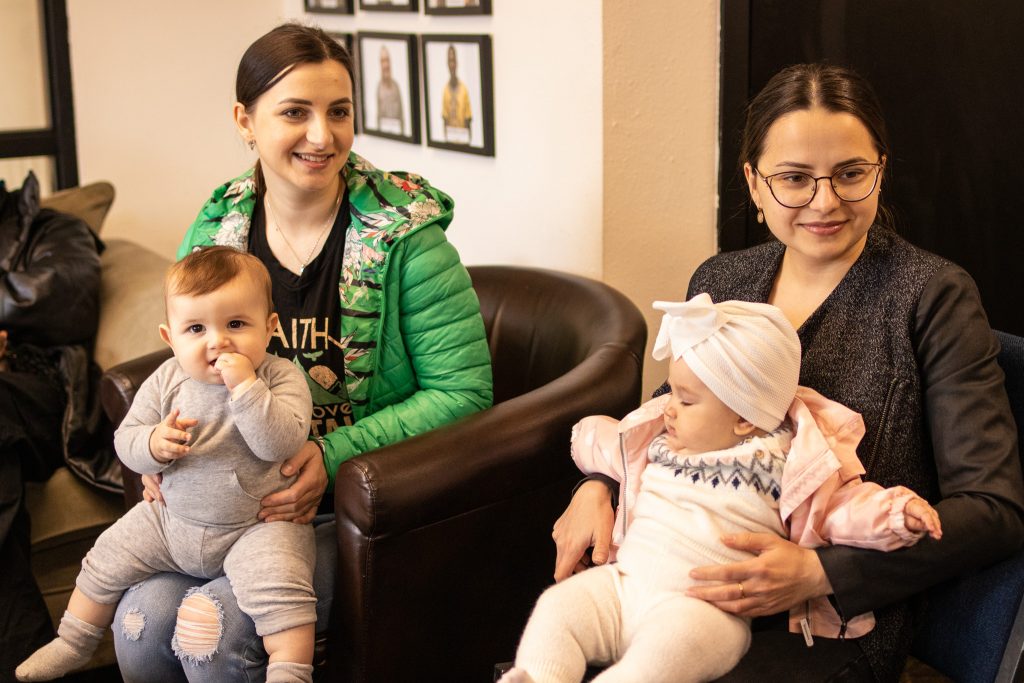
Want to be a part of creating welcoming communities? Become a monthly giver.
Christian refugees from Pakistan reunite in Spokane after nearly seven years apart
Arooj Nirmal, left, who came to Spokane in 2017 as a Christian refugee from Pakistan, wipes away tears as she reunites with her husband, Sunny, for the first time in almost seven years on Wednesday evening at Spokane International Airport. He had just flown in from Sri Lanka.
Read the full article here. Story and image courtesy of The Spokesman Review.
What is Resettlement
The Joys and the Challenges.
“The most rewarding part of being a case manager at World Relief is watching the face of a family member reuniting with a loved one — where their whole face demonstrates joy and they embrace each other, having not known for sure whether they would ever be given this chance” – Isabella, Resettlement case manager.
“Of course, like every job, there are challenges — lots of unexpected urgencies and needs to be met. For example, a family’s utilities not working and vehicles breaking down on their way to a doctor’s appointment. In every way, the job requires a heart full of compassion and willing hands and feet to work.”
Staff in the Resettlement department at World Relief list lots of rewards: airport arrivals, family reunifications, citizenship ceremonies, first glimpses of snow, clients receiving much-needed medical care after months/years of waiting, high school and college graduations, friendships forged between people from different parts of the world who seem like they never should have met.
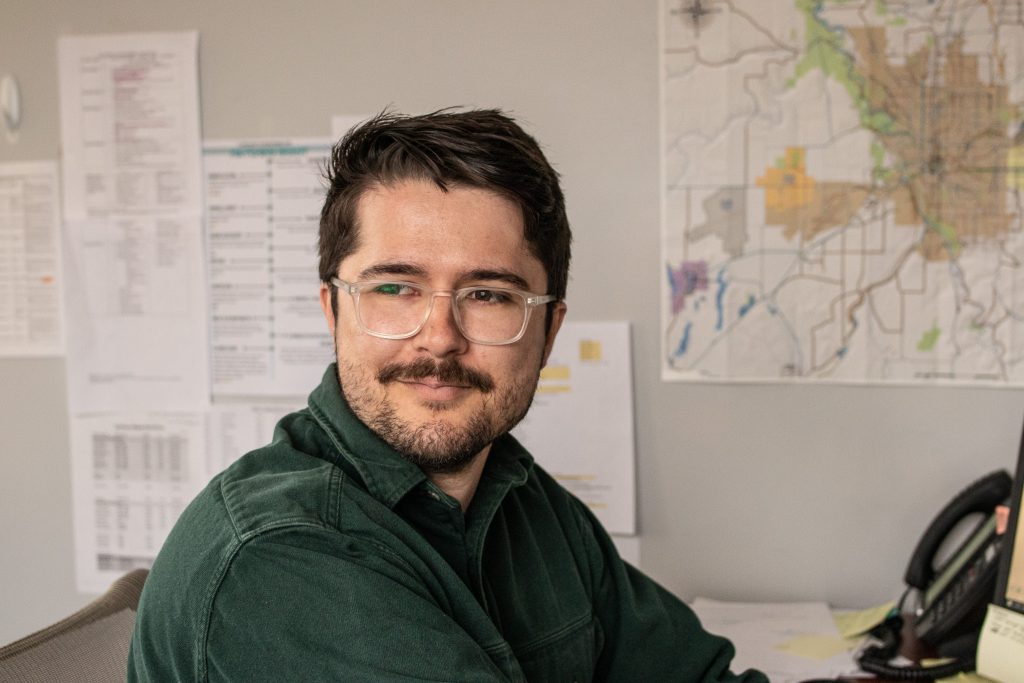
“The work that is done in the Resettlement department is very human,” said Gio, Resettlement Program Manager. “It is done by humans for humans. This human aspect is essential to our jobs and something we highly value. It’s why we are here.”
What can sometimes be missed, however, is the hard work behind the rewards.
“Alongside this very human work is a complex process of documents, contract-regulated timelines, etc. Combine this with the fact that no person’s/family’s needs are ever the same and the local environment in which we work is always changing (think housing, jobs, policies) and a complex process becomes even more complex. Because of this challenging environment, we need the help of the community in Spokane. We need volunteers, landlords, service providers and the community at large to come together to make this happen.”
The work of welcoming people is a community effort. (Repeat those last two words with emphasis: Community. Effort.)
“I would say this work is harder than people realize and better and more rewarding than people realize” – Jordan Bemis, Resettlement Director.
Jordan has been working at World Relief for 12 years, first as an intern, then as a case manager, a pre-arrival coordinator, a program manager, and now as Director of Resettlement and Placement. “The planning, the details, just the amount of work that goes into resettling one family is enormous.”
Pre-Arrival
The work of World Relief Spokane begins with resettlement. Eugenia, WR Spokane pre-arrival coordinator, is notified a few weeks before families arrive. She receives the airport arrival info, the number and ages of people in each family, where they are coming from and whether they have any US ties in the area. She arranges for them to be met upon arrival and transported to their temporary accommodations, which can vary widely – a church basement, an Airbnb, a host home. If the ethnic community has a presence in Spokane, they may be part of the welcome and provide an initial, culturally appropriate meal.
Anzhella, the initial healthcare coordinator, is also working behind the scenes prior to the family’s arrival. She reads the family’s medical records, researches their needs, sets up refugee health screenings, and coordinates healthcare providers for a smooth transition into the US healthcare system. For pregnant women and moms with young children, she makes sure they get set up with WIC. And for elderly patients, she helps them apply for SSI.
“I want to be prepared ahead of time so that families receive the care they desperately need right away.”
Early Days
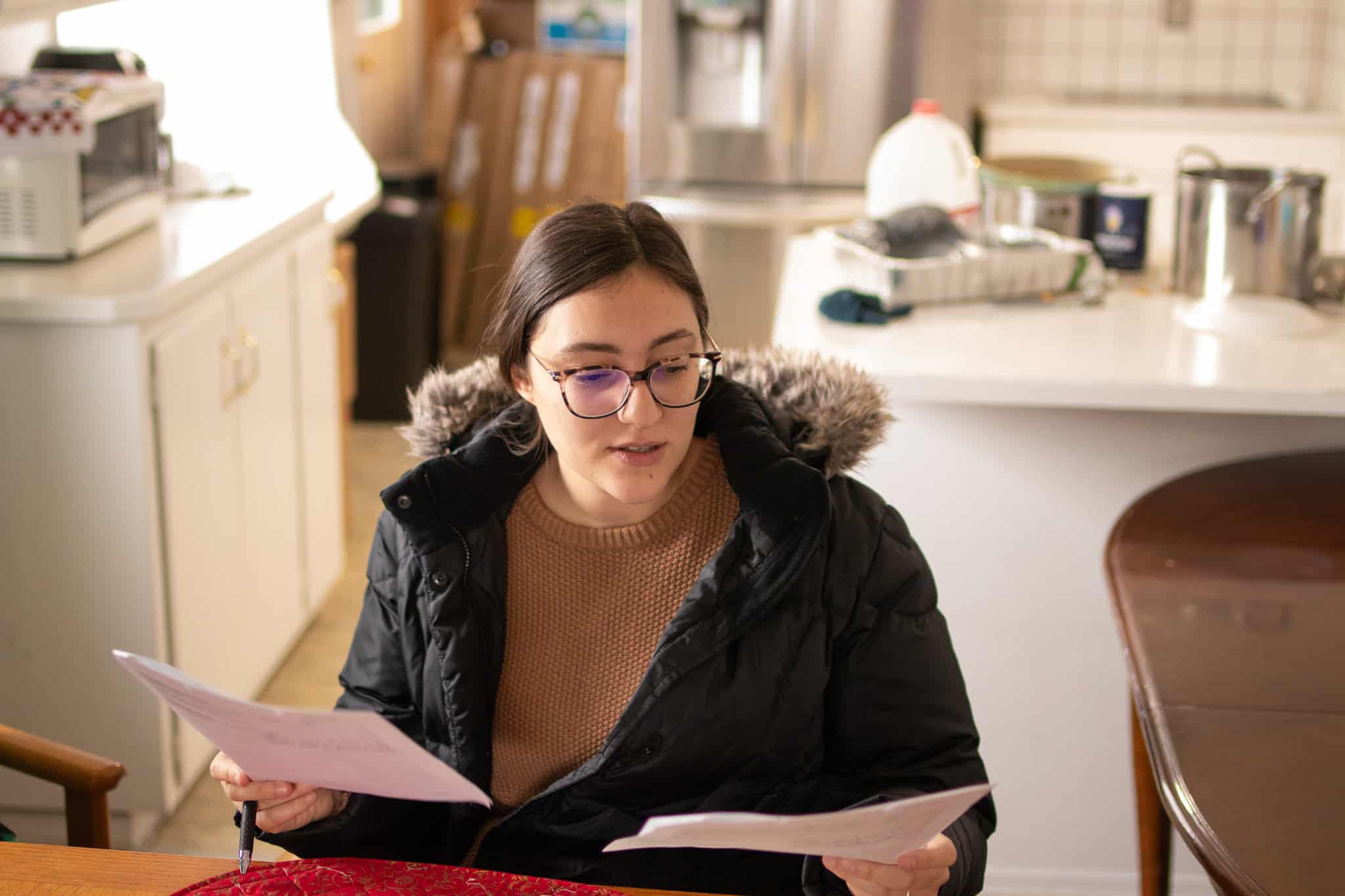
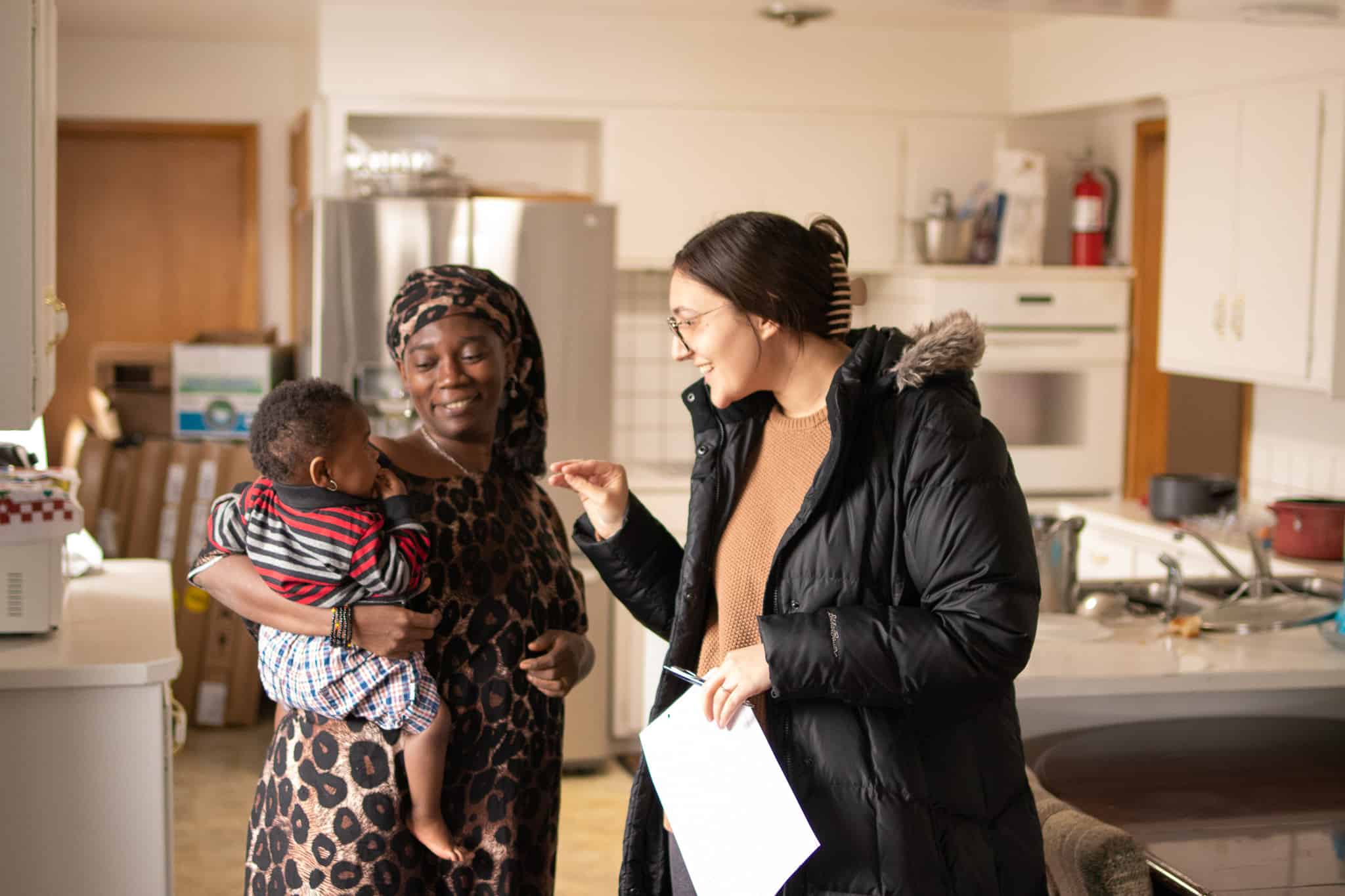
The day after arrival, a case manager visits the family in their temporary home to welcome them and begin the process of establishing roots in Spokane. The case manager explains World Relief’s role and asks questions to better understand the family’s situation and goals. The WR team provide groceries for their first few days and identifies a nearby grocery store for future shopping. Paperwork is signed and next steps identified.
Within the first week, the family comes to the World Relief office for a cultural orientation or, when appropriate, to be interviewed for enrollment in Match Grant. Match Grant is an accelerated option for families with limited barriers to employment and an eagerness to work.
Cultural orientation is meant to give the family a picture of life in Spokane and how it may differ from their previous life. World Relief staff and volunteers teach families about basic laws, resources and benefits, how to use public transportation, health and medical services, family reunification options and more.
Expectations
Part of cultural orientation is also about setting realistic expectations – on both sides. What can the clients realistically expect and what will the landlords and employers they meet be expecting?
Jordan said, “Rumors about the US abound overseas. Refugees hear that everything will be provided for them when they arrive. They will receive a house, a car, they won’t have to work or they will be given the exact same job that they did back home. The reality is that they will have to work really hard, their first living arrangement will be really basic, and they won’t have much choice of where it is.
“We try to frame these conversations by talking about how this is just a starter home, or they just need a starter job to survive. You can literally see on their faces when culture shock sets in, that this isn’t like what they were expecting.
“As a staff, we have to remember that every refugee has experienced trauma; through fleeing their country and their individual experiences. Some respond to these new situations out of frustration and can be pretty thankless. But no one on our staff took this job to be thanked. We took this job because we know welcoming the stranger is the right thing to do. It is an act of justice and of mercy.”
Getting Settled
Eugenia works closely with Erika, WR housing coordinator, to determine when a family will be able to move from temporary to permanent housing. Erika works with landlords to find permanent housing for our families. She may have to call 50 different landlords to arrange for four viewings, and from there, she may or may not locate an appropriate rental.
“About ten percent of the landlords respond to my inquiries, and only about two percent of the contacts end up being a successful resource. Refugees don’t have Social Security numbers when they arrive. They don’t have work authorization for the first 6 weeks. They don’t have a credit score, co-signers or a driver’s license – all of those are vital when applying for housing.”
Jordan says finding housing is the single most difficult part of Resettlement.
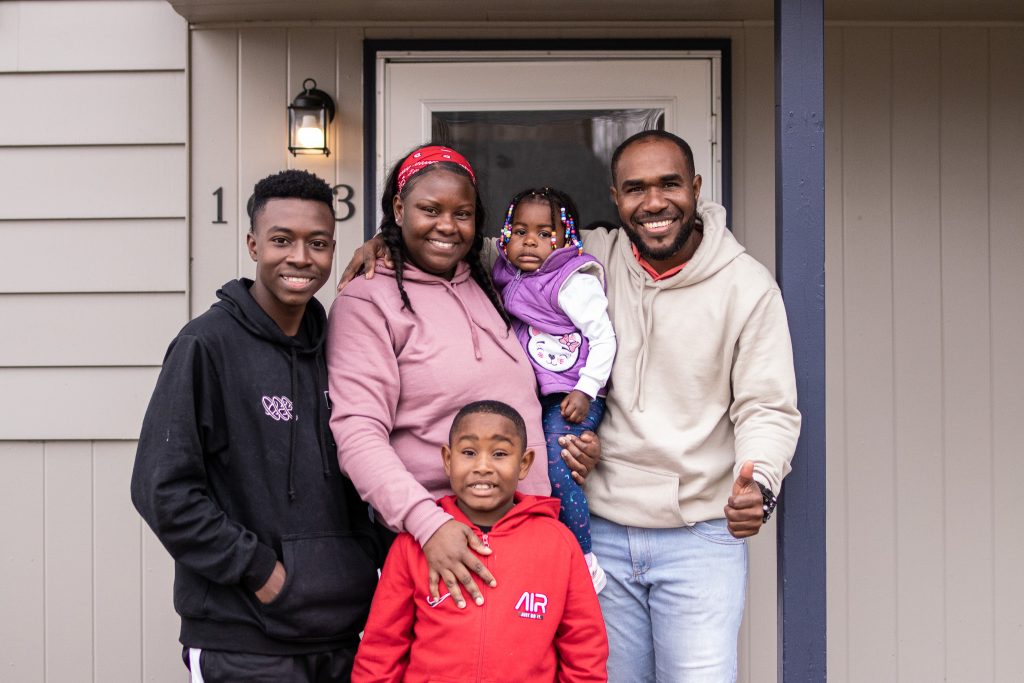
The current rental vacancy in Spokane is about 4.7 percent, up from a few months ago, but still tight.
“Just finding available housing is difficult,” Jordan said, “and then to find landlords willing to rent to refugees who don’t have a job yet and no rental history here. It is a bit of a leap of faith on the landlord’s part, and mostly, it is done because we have built relationships over the years with them.
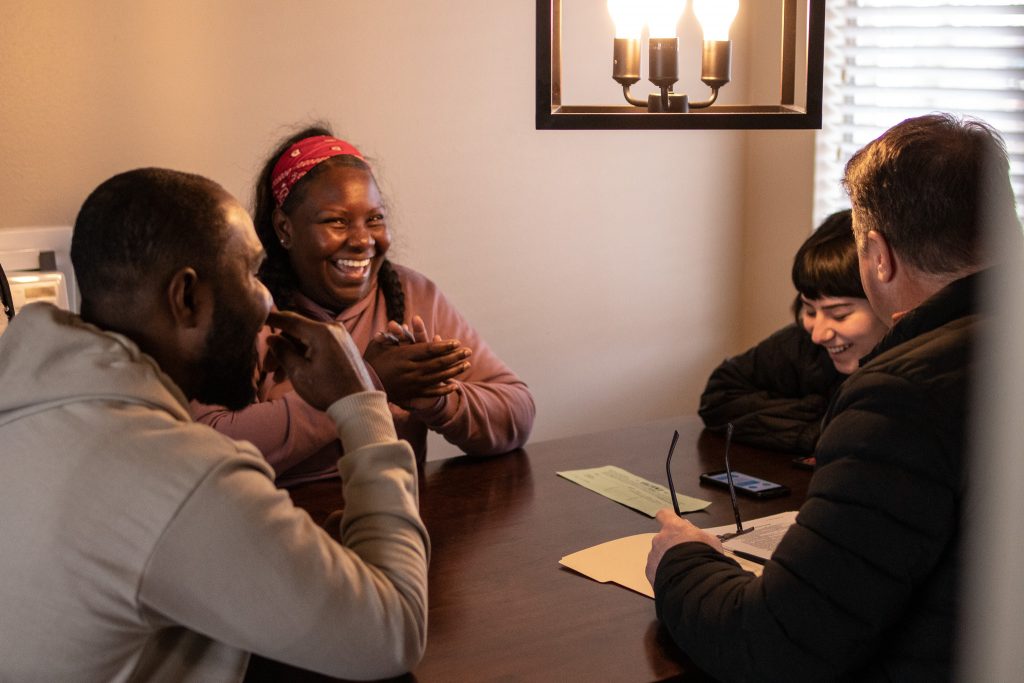
“Ongoing housing has definite challenges. We have refugees coming from dozens of different countries and cultures, and each family is different in terms of their experience with housing and the amenities they have had. We have families who speak amazing English when they arrive and who have lived in better homes than I have. They already know how to use all of the appliances. Then, we have families who have been stuck in a refugee camp for possibly decades, and we have to start from the beginning: how to use a key, how to use the stove, how to store food properly, how to keep water in the tub by using a shower curtain, and how to flush toilet paper and plunge a toilet. This family also may not speak English, but they may speak like five other languages.”
90 Days
Resettlement is all about the first 90 days – getting a family settled and off to a promising start.
“Case managers teach them how to pay their rent, help them understand how to budget, how to get a check or money order and how to send mail. I have demonstrated many times how to lick an envelope. All of this takes time and each family is different in how quickly they pick things up.”
Case managers in Resettlement also connect clients with specialists in the Economic Empowerment when they need assistance in finding jobs or with case managers in Intensive Case Management for those who need longer term assistance because of additional barriers.
End Results
After 12 years, Jordan perhaps sees the big picture clearer than anyone: “I get to tell people about the best parts of my job, like going to the airport for a family reunification case where a mom has been separated from her daughter for 12 years or a spouse has been separated from her husband for seven years. Many, many smiles and tears.
“I absolutely love enrolling kids in school and taking them to their school to take a tour and meet their teachers and show them how to take the bus the next day. They are shy and nervous and excited and full of thoughts. It’s one of the moments that you see these newcomers start to dream about what a future looks like and what is possible. For many of them, they have been stuck for years with no home and no hope. Resettling to the United States, though it is hard, allows them to dream again.
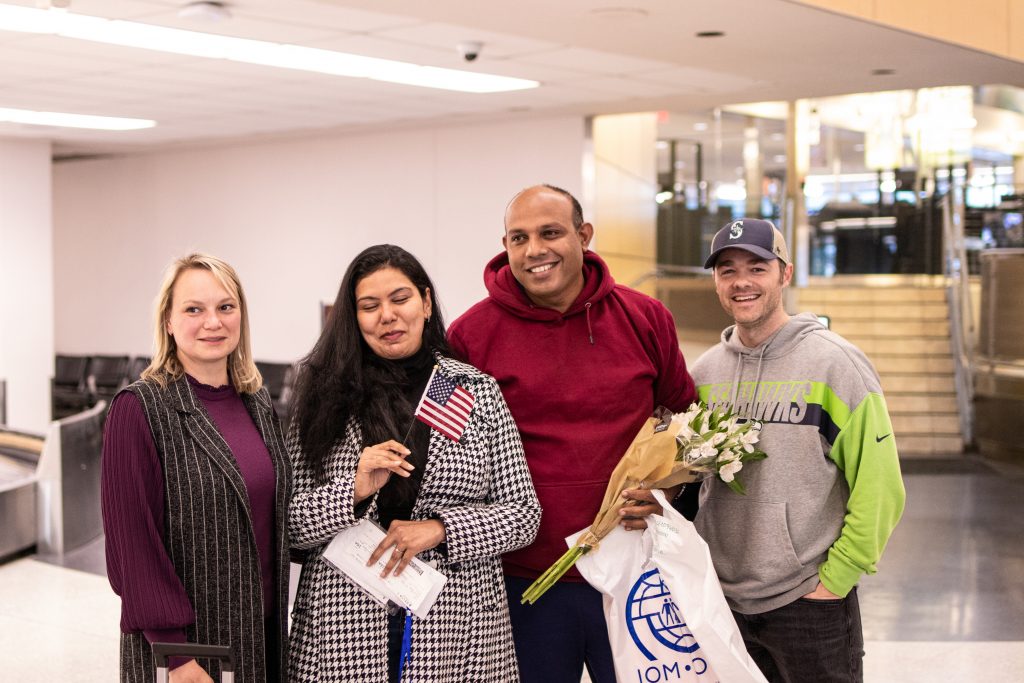
“And the other best part, since I’ve worked here so long, is being able to see the results of the hard work these families put in – the dream jobs they now how, the businesses they’ve started, the kids who’ve graduated college and have their dream jobs and are getting married, the many refugees who have gone through the naturalization process and become citizens. There is something pretty great when you stick around a place for so long and you are able to see all of these families succeed and flourish and become members of the community.”
Want to be part of this welcoming community?
We need you! We need financial partners, volunteers, and people to donate cleaning supplies, hygiene items and gently used furniture. Find out more on our website.
World Relief Promotes Refugee Resettlement Efforts in Spokane and Advocates for Greater Community Engagement
Matthew Soerens, Vice President for Advocacy and Policy at World Relief and coauthor of Welcoming the Stranger: Justice, Compassion and Truth in the Immigration Debate will visit the organization’s Spokane location this Wednesday and plans to speak at a number of scheduled events in the area. Soerens hopes to encourage the local community to extend greater support to vulnerable immigrants and refugees.
On March 15, Soerens will lead a Lunch and Learn event at the Spokane Public Library from 11:30 am – 1:00 pm. Registration for the event, “Building Communities of Welcome,” is open to the public and will be centered on exploring God’s heart for immigrants and refugees and how communities can participate in providing resources and support that help them settle into their new homes.
“Throughout Scripture, we see repeated proof that God cares uniquely for the vulnerable and the stranger. As refugees continue to join our communities, our interactions with them are an opportunity to reflect God’s heart,” said Soerens. “At World Relief, we have seen time and again refugees’ greatest need is support as they navigate an unfamiliar culture and seek to rebuild their lives in a new country. For the last 30 years, our office in Spokane has risen up to do just that – and our communities must continue to join in this work as the need for these services continues to grow.”
Soerens will also use his visit to Spokane as an opportunity to speak about World Relief’s ongoing advocacy efforts for refugees and immigrants in the United States. The World Relief Spokane office joins in these advocacy efforts by partnering with local individuals, churches, and communities to welcome refugees, and is encouraged by federal programs like Welcome Corps, recently launched by the Biden administration, that allow for private refugee sponsorship.
“Supportive communities are one of our greatest resources for welcoming new refugees into our state and empowering them to become contributing members of their new home,” said Christi Armstrong, Executive Director at World Relief Spokane. “Increasing refugee resettlement efforts in Spokane is not only a response to God’s call to love our neighbors, but is also an investment in building stronger communities.”
Immigrant women and children gather at Spokane Central Library for International Women’s Day
We were one of many booths at the library, meeting and talking with the women of the refugee and immigrant communities in Spokane, celebrating their strength and dignity. Check out the coverage by KHQ News here.
Economic Empowerment: Immigration and Jobs
Ronald Reagan once famously said: “The best social program is a job.”
It might be overly simplistic, but he’s not wrong. In our experience, the refugees and new arrivals coming to the United States through World Relief very much want to work. They have come for a better life which includes finding meaningful work. Those coming from refugee camps have not been allowed to work – some for decades – and are eager to use their skills to build a life in their new home.
Jared Booker, Director of Economic Empowerment at World Relief Spokane, described his department’s role like this: “We don’t simply find someone a job. We encourage our clients to dream again. A job can bring dignity, confidence, and the ability to be a positive part of something much larger than themselves. These are all things that have, for the most part, gone dormant within our clients.”
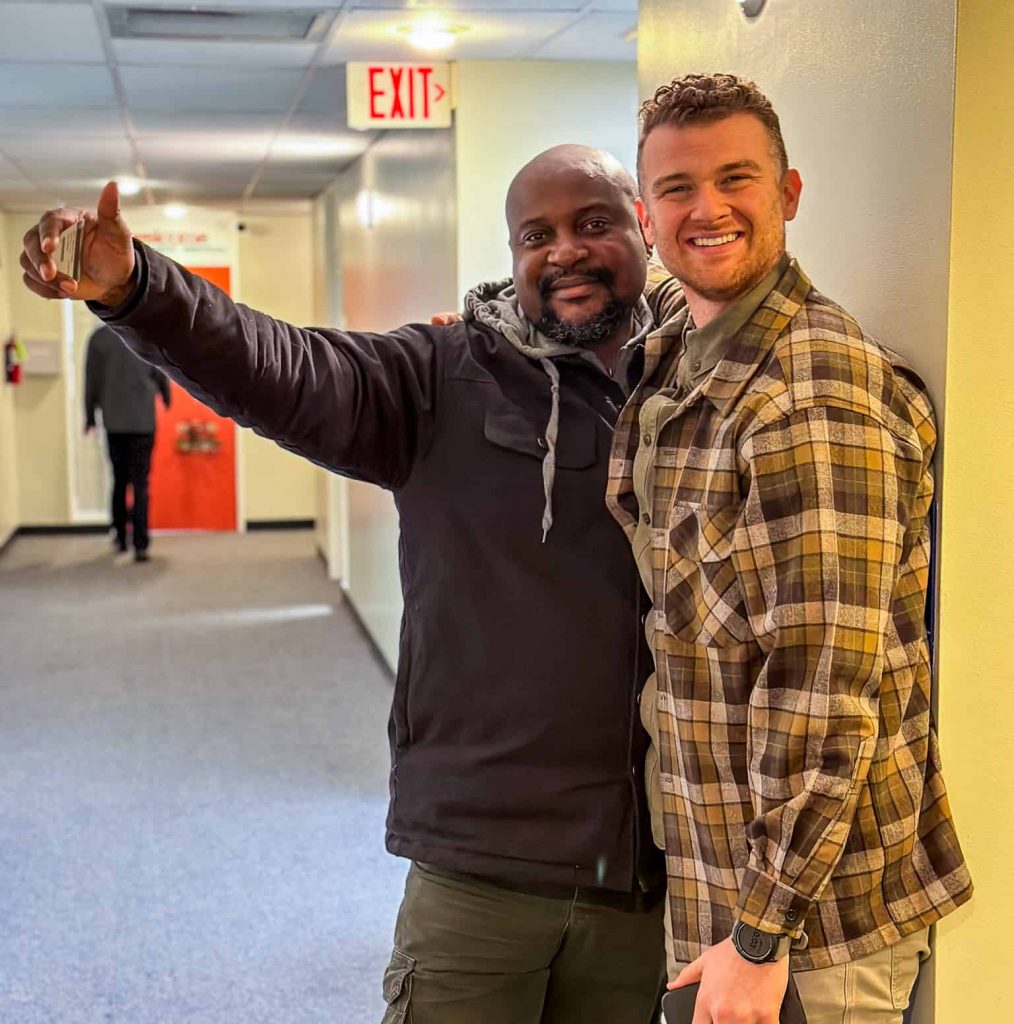
World Relief’s goal is to help each new immigrant family find employment for at least one adult in the first 90 days. The first job may be an entry-level position while the clients work on their language skills, navigate transportation and develop skills. Clients are welcome to come back at a future date when they are ready to pursue a more career-oriented position. Job Readiness Workshops provide clients with information and mentoring on how to find and maintain meaningful employment.
Currently, the workshops run three times a week with different days devoted to different groups of people so that interpreters can be available as necessary. Clients learn both soft and hard skills – matching your skills to a job, goal setting, resolving conflict, teamwork, interviewing, etc.
Economic Empowerment specialists each carry a workload of approximately 60 people with whom they are working to find employment. Specialists interview clients, manage expectations, help with resumes and applications, set up interviews and coach/encourage clients along the way. They work with a variety of employers from manufacturing to hospitality: HDT Global, Starbucks, Panda Express, Davenport Hotels, and K-L Manufacturing, to name a few.
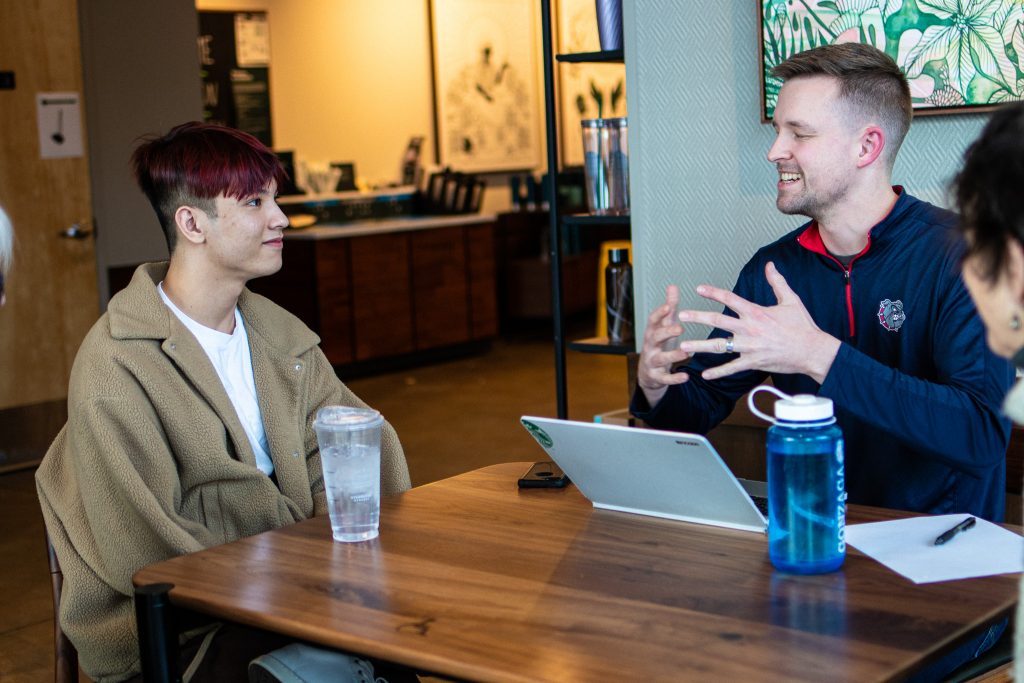
Two-Way Benefit
Sometimes people use employment issues as an argument against immigration: “They’re taking our jobs.” Or… “They’re just going to end up on welfare and drain all our resources.”
The facts, however, do not support either claim:
According to Labor Secretary Martin Walsh, “We don’t have enough workers in the United States of America to fill all the job openings that are out there… The threat to the American economy long-term is not inflation, it’s [about] immigration. It’s not having enough workers… America has always been a country that has depended on immigration.”– Wall Street Journal
“While the perception persists that people migrate to milk America’s social safety net, the reality is that almost all immigrants come to the United States to work. Immigrants overall are significantly more likely than native-born US citizens to be employed.” – Welcoming the Stranger
World Relief’s Jared Booker put these facts into context: “We don’t buy into a sense of employment scarcity. A job for a refugee or immigrant is not one less slice of the pie for you or me. The reality is that, as we welcome newcomers, newcomers also know how to make pie, and there’s more pie for everyone.”
Enriching Our Lives
“They are enriching our lives and expanding our understanding of others.” – Jayne McLaughlin
One local employer discovered that new immigrants not only make great employees, they add unexpected value.
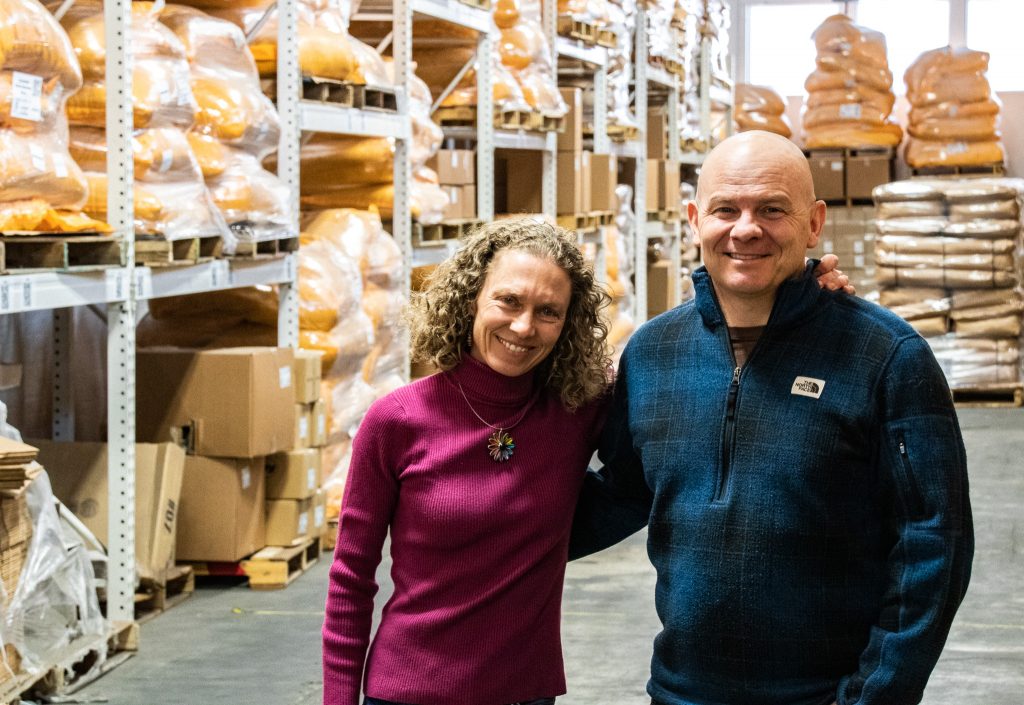
Executive Director Christi Armstrong, who started her career with World Relief in 2013 with the employment department, remembers her first encounter with Waterglider:
“When I got my first clients on my caseload, they were all single Sudanese men. My job was to help them find jobs. I was looking at the WorkSource website, and I saw this opportunity for Waterglider.” Little did she know what a great partnership was about to begin. “The interview was very short. Sean really liked the guys and hired the two of them together to start working production at Waterglider.”
From then on, “They called me whenever they had positions,” Christi said. “We would do whatever we could to bring other Sudanese people to them because of the language barrier. Gamar and Ibrahim had learned a little more English by then, so they would be able to train other people.
“I think what I love most about Sean and Jayne is that they saw these guys – not as a deficit because of the language barrier but as assets because of their work ethic. They’re just go-getters. They came here to work. They came here to get a better life. Sean and Jayne picked up on that really quickly and so they were more than willing to give them a chance.”
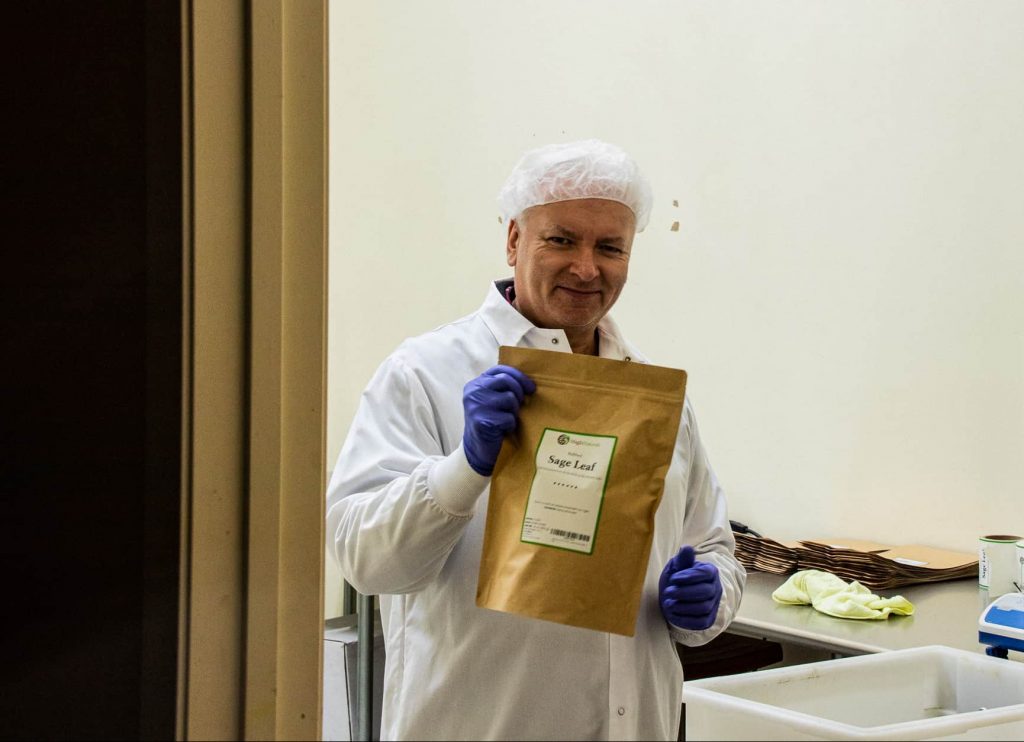
Sean and Jayne are still hiring refugees. Currently, they have two employees from Ukraine, one from Thailand, one from Burma and Rose, from Burundi, who makes all of the bath bombs.
“All our refugee employees have been really hard-working, very nice people, very grateful, sincere, friendly, nice to have around,” Jayne said. “They are enriching our lives and expanding our understanding of others.”
Best friends help refugees amid war…
“Despite Russia being at war with Ukraine, two best friends from each country have a deep understanding for each other and work each day to achieve one common goal.”
Read the full Channel 4 KXLY story.
World Relief Mobilizes to Provide Immediate Support to Devastated Communities in Wake of Turkey and Syria Earthquake
February 7, 2023
CONTACT:
Pinkston Team
wr@pinkston.co
Baltimore, Md. – In the wake of a devastating earthquake that hit Turkey and Syria, World Relief has mobilized resources on the ground to provide immediate assistance and long term support for search and recovery efforts.
“We join with our international partners in grieving the significant loss of life from the earthquakes and extend our prayers to the impacted communities,” said Myal Greene, president and CEO of World Relief. “At World Relief, we desire to see a world free from suffering, and when disaster strikes, our faith compels us to respond. By providing immediate emergency aid, World Relief is committed to delivering hope to impacted communities and assistance in rebuilding from this disaster both in the short term and in the years to come.”
World Relief is partnering with local partners and churches on the ground in Turkey and Syria to provide support and resources to impacted communities including food and clean water, emergency medical assistance, safe shelter, sanitation and hygiene, and psychosocial support.
World Relief is committed to extending the love and compassion of Christ to suffering and grieving communities in Turkey and Syria by joining with its international partners to provide immediate support and build resilience.
To download a PDF version of this press release, click here.
Spokane woman awaits word from Turkish friends after deadly earthquake
“Rezvan Mohammadi lived in Turkey for nine years and says she hasn’t heard from some of her good friends since Monday’s earthquake.”
Read full KREM 2 article here.
‘I’m really worried’: Spokane woman with ties to Turkey reacts to devastating earthquake
“Rezvan Mohammadi works at World Relief. She has ties to Turkey, as her brother and his wife, and family live close to the cities hit by the earthquake.”
Read full KXLY Channel 4 article here.











